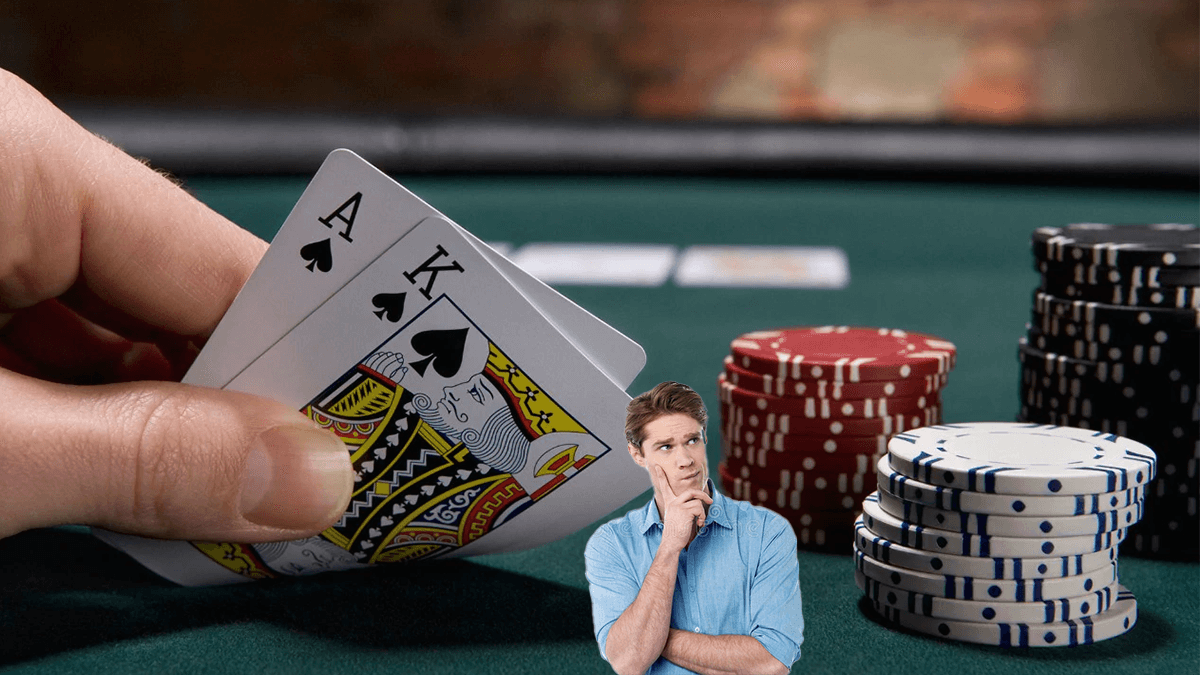Poker is a game of highs and lows. You can be on top of the world one moment and have everything crashing down on you the next. This makes the game so exciting and unpredictable, but it also makes it incredibly frustrating at times. A bad beat in poker can be soul-crushing, but it’s not the end of the world. Here’s how to come back after a bad beat in poker.

Take a Break
The first thing you should do after a bad beat is to take a break. Whether it’s a few minutes or days, stepping away from the game can help clear your head and put things into perspective. Walk, drink, or do something else to take your mind off the game. This can help you relax and return to the table with a fresh perspective.
Evaluate Your Play
After taking a break, it’s important to evaluate your play. Was the bad beat a result of a mistake you made? Did you play the hand correctly but still get unlucky? Identifying what went wrong can help you avoid making the same mistake. If it was just bad luck, then there’s nothing you could have done differently. However, if you make a mistake, learn from it and don’t repeat it.
Refocus on the Present
It’s easy to get caught up in the past and dwell on what could have been. However, dwelling on the past won’t change what happened. Instead, it’s important to use the present and the opportunities ahead. Don’t let the bad beat dictate your future play. Instead, stay focused on the present and play each hand to the best of your ability.
Control Your Emotions
A bad beat can be an emotional rollercoaster. It’s important to control your emotions and not let them get the best of you. Avoid tilting, which is when you play emotionally instead of logically. Don’t make impulsive decisions or try to force action. Instead, stay calm and focused on the game.
Stick to Your Game Plan
Every player has a game plan when they sit down at the table. Don’t let a bad beat change your game plan. Instead, stick to your strategy and play your game. Don’t try to chase your losses or make up for a bad beat by playing aggressively. Instead, stick to your plan and trust the process.
Learn from the Experience
A bad beat can be a learning experience. Use it as an opportunity to improve your game. First, analyze what happened and what you could have done differently. Then, incorporate what you’ve learned into your game plan and use it to make better decisions in the future.
Don’t Give Up
The most important thing to remember after a bad beat is not to give up. Losing a big pot can be demoralizing, but keeping playing is important. Don’t let one bad beat ruin your entire session or bankroll. Instead, keep playing and trust that things will turn around. If you give up, you’ll never have the chance to win back what you lost.
Avoid Displaying Tell Tale Signs
Poker is a game of half-truths and misinformation. After you take a bad beat, don’t give away any information about your hand or how it affected you. Don’t show anger, disappointment or even relief on your face, as this will only let other players know that the bad beat hurt you. Avoid showing any tell-tale signs that could give away how the hand played out.
Stay Away from Alcohol
Finally, it’s important to stay away from alcohol after a bad beat. Drinking can make it harder to control your emotions and make logical decisions. Instead, stick to soft drinks or water until you’ve regained your composure. This will help you stay focused on the game and avoid impulsive decisions.
Conclusion
In conclusion, a bad beat in poker can be frustrating, but it’s not the end of the world. Take a break, evaluate your play, refocus on the present, control your emotions, stick to your game plan, learn from the experience, and don’t give up. Following these steps will help you return after a bad beat and continue playing the game you love. Remember, poker is a game of highs and lows, and how you handle the lows will ultimately determine your success.
